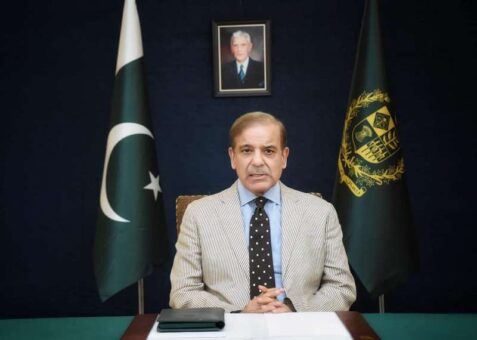On Sunday, Prime Minister Muhammad Shehbaz Sharif expressed his satisfaction regarding the reopening of Khunjerab Pass, stating that it would boost bilateral trade between Pakistan and China.
(more…)Tag: CPEC
-
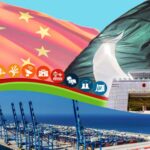
Pakistan assures secure, friendly environment for Chinese investors
ISLAMABAD: Pakistan on Thursday assured a completely secure and conducive business environment for Chinese investors.
(more…) -
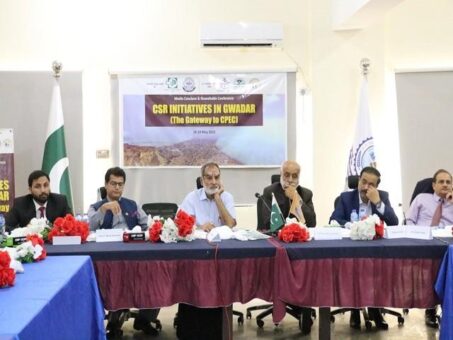
CPEC CSR projects, development in Gwadar reviewed
GWADAR: The initiatives in the domain of Corporate Social Responsibility (CSR) undertaken by China Overseas Ports Holding Company (COPHC) and other Chinese firms in Gwadar are appreciable and are aimed at the right direction, however, effective development communication and positive engagement with local communities is critical for the effectiveness and long-term success of these projects.
All stakeholders should devise a mechanism for an integrated socio-economic development strategy and ensure inclusion of the hopes and aspiration of the inhabitants of Gwadar vis-à-vis CPEC.
This was the crux of a two-day media conclave and roundtable conference titled ‘CSR Initiatives in Gwadar (The Gateway to CPEC)’ co-organized by Institute of Policy Studies (IPS), Islamabad and the University of Gwadar in collaboration with COPHC, Gwadar Port Authority (GPA) and Gwadar Development Authority (GDA) in the strategic port town.
Speaking on the occasion, Naseer Khan Kashani, chairman, Gwadar Port Authority (GPA) stressed the importance of bringing the locals together through CSR.
“We must prioritize people over infrastructure development. Drinkable water and electricity is the top priority of the authorities in Gwadar”, he stated.
Kashani said a desalination plant of about 1.2 million gallons would become operational in six to eight months that would provide drinkable water for the locals.
Moreover, the newly inaugurated state-of-the-art Pak-China Vocational & Technical Training Institute will provide three years’ training to local youth, which is a big contribution by our Chinese friends, he added.
“Chinese authorities have also recently provided 3,000 solar panels to the poorest of the poor in Gwadar for the provision of electricity,” he informed.
While delivering the keynote speech, Zhang Baozhong, Chairman COPHC spoke at length about the experiences of his seven-year stay in Gwadar.
“We are cognizant of the fact that Gwadar deserves more rapid development to live up to the expectations of the local people. There is no denying the fact that it has developed much during the past seven years”, he remarked.
He stated three reasons for the promising prospects of Gwadar: the cooperation of the Gwadar people, its vast resources, and its strategic location.
“The inhabitants of Gwadar deserve respect and development according to their rightful demands”, Mr. Baozhong underscored.
“We are sending 20 students to China on scholarships every year. We have been running a primary school here for the last five years and soon we will construct a secondary school as well. More than 6000 solar panel units have been distributed among the people of Gwadar so far, and around 500,000 trees have been planted,” Shahzad Sultan, Country Head Marketing of COPHC informed while providing details of the CSR initiatives.
Chairman IPS Khalid Rahman highlighted the concept of CSR and elements that can improve the lives of the local inhabitants.
“We must have solution-oriented recommendations, not problem-oriented,” he said adding that positive thinking and improvement in governance will bring a huge change in the life of the people of Gwadar.
“CSR activities do not mean spending a share of your profit, it’s about creating an environment which is not harmful for the society in any way,” he added.
Professor Dr Abdul Razzaq Sabir, Vice Chancellor, University of Gwadar, in his welcome address earlier appreciated the initiatives of IPS for identifying challenges in the area.
He said giving back to the society is the biggest responsibility of corporate sector. Working on development of human resources should be the biggest priority of the government and private sector. As Gwadar is expanding after development of the port, it is important to learn from China’s experience and expertise through student exchange program. “We must train our youth to become productive elements of Gwadar.”
He was of the view that CSR must be defined in local perspective. Local issues could be considered to resolve people’s genuine and basic issues and problems through CSR initiatives.
He emphasized that engaging local community and civil society could result in better planning, befitting solutions and better implementation with local wisdom and participation.
Dr. Rashid Aftab, director Riphah Institute of Public Policy (RIPP) commented that reservations of locals must be addressed with evidence-based data sharing with all relevant stakeholders.
Jawad Akhtar Khokhar, advisor, maritime affairs, Ministry of Planning, Development & Special Initiatives, earlier gave a detailed overview of the development projects in Gwadar under various modalities and highlighted the CPEC projects in Gwadar worth $2.1 billion so far.
He said so far three projects worth $314 million have been completed. These projects included Gwadar Smart Port City Master Plan, physical infrastructure of Gwadar Port and Free Zone Phase-1, and Pak-China Technical and Vocational Institute. Another seven projects worth $1.44 billion are under implementation process. These projects include Eastbay Expressway, which is 98 per cent complete; facilities of fresh water treatment, water supply and distribution, which are 70 per cent complete; New Gwadar International Airport; Pak-China Friendship Hospital Gwadar; infrastructure of Gwadar Free Zone Phase-II; 300 MW coal power plant and 1.2 million gallons’ desalination plant.
Khokhar said under the short-term strategy the prioritized projects include provision of water in three months and electricity in five months for Gwadar, Trading Corporation of Pakistan has been authorized to import one-third cargoes at Gwadar; and completion of M-8 motorway.
Highlighting long-term strategy, he said the government is aiming to build LNG and POL terminals at Gwadar port and ensure availability of electricity, water and gas to enable phase-2 expansion of the port.
Dolat Khan, registrar, University of Gwadar and Arsalan Ali, Head of Investments, Gwadar Development Authority (GDA) also spoke on the occasion.
It may be mentioned that the media conclave and roundtable conference was attended by a number of senior journalists and academics from Karachi, Islamabad and Gwadar. The delegates also visited China-Pakistan Vocational and Technical Training Institute and other sites under CSR to witness the pace of progress. They interacted with the local students and teachers to observe their views.
-
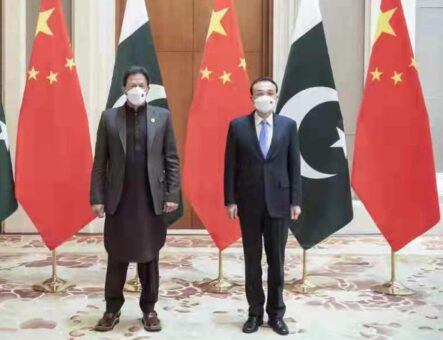
Pakistan, China discuss bilateral economic, trade ties
BEIJING: Pakistan Prime Minister Imran Khan held wide-ranging talks with Li Keqiang, Premier of the State Council of the People’s Republic of China on Saturday.
(more…) -

PM Imran invites Chinese companies to invest in Pakistan
BEIJING (China): Prime Minister Imran Khan on Friday invited Chinese companies to invest in Pakistan and take benefit from the business-friendly policies of the government.
The prime minister, who held a series of meetings with the executives of Chinese State-owned and private corporate sectors, said Pakistan was offering conducive environment for investment in Special Economic Zones (SEZs) under the China Pakistan Economic Corridor (CPEC).
READ MORE: Prime Minister Imran kicks off visit to China
In his remarks, the prime minister appreciated the keen interest of the Chinese companies to invest in Pakistan.
The executives who met the prime minister included leadership of China Communication Construction Company (CCCC), Huazhong Technology, Zhejiang Seaport Group, Challenge Apparel, Hunan Sunwalk Group, Royal Group, China Road and Bridge Corporation (CRBC), Zhengbang Group and China Machinery Engineering Corporation (CMEC).
READ MORE: PM Imran terms exports, tax collection must for growth
The corporate leaders briefed the prime minister on the progress of their on-going projects in Pakistan.
They evinced keen interest in expanding investments in Pakistan in projects related to recycling of metals and paper, energy, textile, fibre-optics networks, housing, dairy and water management.
READ MORE: Timelines for CPEC projects should be adhered to: PM
The CCCC is a leading global construction and infrastructure development company; Huazhong Technology, specialises in integrated papermaking equipment; Zhejiang Seaport Group is one of China’s largest port operator; Challenge Fashions is a leading textile company; Hunan Sunwalk’s core business is in communications, 3D printing and construction; Royal Group is China’s largest buffalo milk producer; CRBC focuses in civil engineering and construction projects; Zhengbang Group is Jiangxi Province’s largest agricultural enterprise; and CMEC is one of Chinese top agro-industrial machinery company.
The prime minister was joined in the meetings by federal ministers, advisers and senior officials.
-

Timelines for CPEC projects should be adhered to: PM
ISLAMABAD: Prime Minister Imran Khan on Wednesday emphasized that timelines specified for completion of China-Pakistan Economic Corridor (CPEC) should be adhered to.
Prime Minister Imran Khan chaired a high level meeting to review progress on CPEC projects.
The Prime Minister emphasized that timelines specified for completion of CPEC projects should be adhered to. He said that Government of Pakistan is fully committed to provisions of CPEC agreements.
The Prime Minister stated that China has been a time-tested friend of Pakistan and that the Government accords high priority to implementation and operationalization of CPEC projects.
The Prime Minister highlighted that continuity of policies is essential for long-term projects in order to achieve maximum benefits for the country.
Earlier, SAPM on CPEC Affairs Khalid Mansoor briefed the meeting about updated status of CPEC projects.
The meeting was attended by Federal Ministers Muhammad Hammad Azhar, Ali Haider Zaidi, Asad Umar, Advisor Finance Shaukat Fayaz Tarin, Advisor Commerce Abdul Razaq Dawood and senior officers.
-
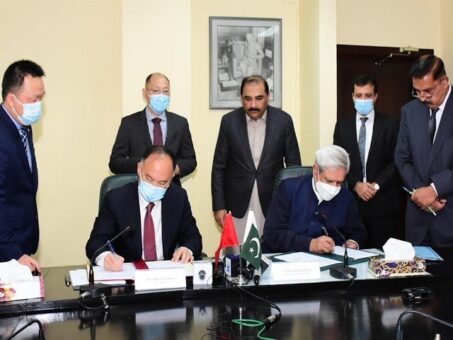
Pakistan, China sign protocol for onion quarantine
ISLAMABAD: A protocol was signed on Tuesday between Pakistani and Chinese authorities for inspection and quarantine requirements for onion export from Pakistan to China.
(more…) -

Focus on increasing investment in export industry: PM
ISLAMABAD: Prime Minister Imran Khan on Tuesday said that the government has focused on increasing investment in the export industry to create employment opportunities.
The prime minister chaired a review meeting of PM’s Priority Sectors which was held in Islamabad.
The prime minister said that the government is taking steps on a priority basis to increase economic activity in the country and is focused on increasing investments in the export industry for creating employment opportunities.
All government institutions are working together to provide a conducive environment for investors. The government is taking steps to speed up work on Phase II of CPEC.
The meeting was given a detailed briefing on the progress of Phase II of the China-Pakistan Economic Corridor (CPEC). The meeting was informed that work on gas and electricity supply in Rashakai, Dhabeji, Allama Iqbal, and Bostan Special Economic Zones (SEZs) is in full swing.
Electricity and gas are mainly available for the construction of industries, while the rest of the required electricity and gas will be supplied with further development of industries.
In this regard, Plug and Play Model have been proposed by CPEC Authority, which is being worked on.
Under the model, all the requirements of the investors will be met through one window operation to ensure the speedy construction of industries in these areas.
At the same time, the Board of Investment is working on a portal to provide investors with information related to the construction of industries, approvals from various institutions, and other ancillary information, which will be launched soon.
The meeting was also informed that a comprehensive system has been launched to review the progress of projects under CPEC and to expedite the development work.
In addition, steps are being taken to increase investment in SEZs by identifying export industries. In the agriculture sector, not only work on corporate farming is in full swing, but also agreements are being made to increase the exports of the sector.
The Prime Minister directed to complete all the steps related to CPEC Phase II within the stipulated time. The meeting was attended by Federal Ministers Asad Umar, Hamad Azhar, Advisors Shaukat Fayyaz Tareen, Moeed Yousuf, Special Assistant Dr Shahbaz Gill, Chairman CPEC Khalid Mansoor, Chairman Board of Investment Azfar Ahsan, and relevant senior officers.
-
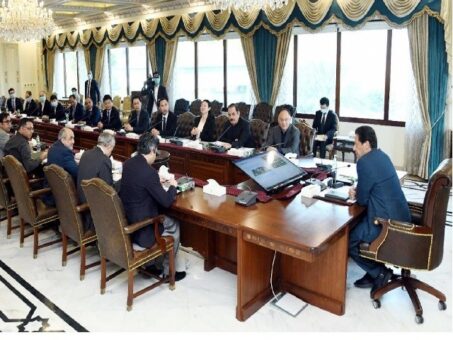
PM Imran directs facilitating Chinese industrialists
ISLAMABAD: Prime Minister Imran Khan on Saturday directed the authorities to ensure all facilities on a priority basis to Chinese industrialists, who are ready to start operation in the country.
In a meeting with Chinese businessmen, the prime minister said the country will support Chinese businesses in Pakistan on a priority basis and are grateful to them for their keen interest in accelerating their investment in Special Economic Zones (SEZs).
The Chinese business delegation led by Chen Yan from Challenge Fashion (Pvt) Ltd.
During the meeting, the prime minister was told that Chinese businessmen are almost ready to start operations in the glass, ceramics and information technology sectors.
The prime minister said that Pakistan and China were connected not only in the past or present but would remain united through their future generations too.
“We appreciate the valuable relationship of the peoples of the two countries,” he added.
It is worth mentioning that OPPO, one of the leading tech manufacturers in the world, is going to establish a local mobile manufacturing unit and a research and development centre in Pakistan.
It would not only save a lot of foreign exchange reserves on the import of smartphones annually but would also create employment opportunities for our tech graduates.
The meeting was also attended by Energy Minister Muhammad Hammad Azhar, Advisor on Commerce Abdul Razzak Dawood, SAPM on Political Communication Dr Shahbaz Gill, SAPM on CPEC Affairs Khalid Mansoor and Chinese Ambassador Nong Rong along with senior officers concerned.
In his remarks, Chinese Ambassador in Pakistan Nong Rong said that he was very happy as since the prime minister’s previous meeting with the Chinese businessmen on September 13, a lot of issues had been resolved and great progress had been achieved.
He said that the Chinese entrepreneurs were encouraged and hoping great progress after this meeting.
“We will send more positive information to China to encourage more Chinese businessmen to make decision to invest in Pakistan,” he commented.
A Chinese entrepreneur representing OPPO, said that the company had already been present in Pakistan for more than seven years and had made around $150 million investment in the country.
He said like other companies, for OPPO too, it was a very good environment in Pakistan to continue to invest there and the interaction with the prime minister helped the swift resolution of the issues.
He thanked the prime minister for helping the Chinese businessmen by extending facilitation to them.
“If anybody comes to me and ask should they invest in Pakistan, I will say yes,” he remarked.
-
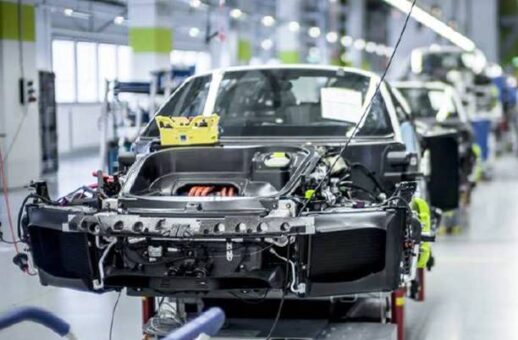
Pakistan eyes eight million annual automobile production
BEIJING: Moin ul Haque, Pakistan Ambassador to China, on Wednesday said that Pakistan is planning to enhance automobile annual production from 0.25 million to eight million units during next five years.
“It is a bit ambitious target but it is possible to achieve this target due to the yearly growth in production as well as interest showed by different automobile companies from across the world especially from China which plans to invest in Pakistan,” he said while addressing Pakistan Automobile Industry Roundtable Seminar held at Pakistan Embassy, Beijing.
The representatives of over 50 renowned automobile companies from different parts of China attended the seminar.
While addressing the participants, the ambassador said that a number of the Chinese companies are already in Pakistan in automobile manufacturing sector while up to 10 new companies have showed interest to invest in Pakistan and are in the process of having joint ventures with their local partners in the private sector.
He informed that the government is formulating a new and very attractive automobile sector policy which will be announced soon, adding, more incentives and concessions in taxes are likely to be offered in the new policy.
Ambassador Haque said that automobile companies including manufacturers of energy vehicles from China will be invited to set up their plants both in the Greenfield and Brownfield sectors.
Giving details about the automobile sector in Pakistan, he said that the automobile is the fastest growing sector in Pakistan because of the large demand in view of the population which is close to 220 million people.
In the past, the Japanese manufacturers had set up their production units but in the recent times the Chinese automobile companies also started looking at the opportunities available in Pakistan.
He said that China is now becoming one of the leaders of automobile manufacturer in the world with very high quality products and expressed the pleasures that the Chinese companies have also entered to the Pakistani automobile market.
While sharing the opportunities under the China Pakistan Economic Corridor (CPEC), he said that the flagship project of the Belt and Road Initiative (BRI) has entered into the second phase which is focusing industrialization, science and technology and agriculture sectors.
“We are setting up special economic zones where we are inviting the Chinese investors to come and set up their manufacturing units,”he added.
Ambassador Haque said that special incentives and policies have been announced for the Chinese companies and so far close to 100 Chinese companies have already established are in the process of establishing their units in the special zones.
He said that the infrastructure like roads, highways and communication network is being upgraded in Pakistan and invited the Chinese companies to take advantage of all these incentives and expand their presence.
Welcoming the representatives of the automobile companies, Commercial Counselor, Badar uz Zaman said that the new automobile policy for years 2021 to 2026 will soon be announced offering more incentives and benefits to local and foreign investors.
He informed that under the current automobile a number of new companies particularly Chinese manufacturers entered in Pakistani market.
Badar said that a number of Chinese companies are already setting up their businesses in Pakistan while some new companies are keen to invest in Pakistan owing to investment friendly policies offered by the present government.
He informed the companies that government has formulated rules and regulations which support the foreign investment in Pakistan.
Badar also shared details of the incentives, concessions in the taxation and easy repatriation of profits.
“Many local companies listed with the stock exchange are very keen and are looking forward to the Chinese partners for the joint ventures,” he added.
He said that there are over 600 auto parts manufacturers who are also supplying the parts to the existing players, adding, “We offer very comprehensive auto financing policies and the banks are very active.
And the amount that has been financed in cars is three times more than the housing finance in Pakistan.”
The commercial counsellor also shared with the companies details of concessions on taxes, duties and particularly cheap labour.
He said that in the current global scenario when there is a supply chain shock, and it is difficult to move things from one place to another place, it is right time for the Chinese investors to take advantage of Pakistan location, low wages and other benefits.
Later, representatives of the companies who are already operating in Pakistan shared their experiences and put forward some useful proposals.
Some new companies which plan to enter into Pakistani automobile industry asked questions and more details about the policies.
The representatives of Anhui Jianghuai Automobile Group, Beijing Henrey Auto, Hozon New Energy Automobile, BAIC Intl, Great Wall Motor Company, Beijing Sanxing Automobile, Foton Motor Group, Tianjin Tianqi Group Meiya Automobile, Zhongtong Bus Holding Co., Youtong Bus, Dongfeng Motor Company, Jiangxi Jiangling Motor, Xiamen Golden Dragon Bus Co., Liaoning Aerospace Automobile Co., Wolkswagen Group, Geely Automobile International Corporation and others attended the seminar.
